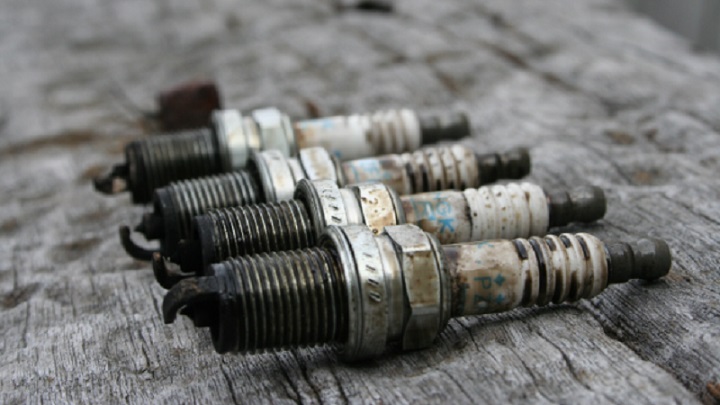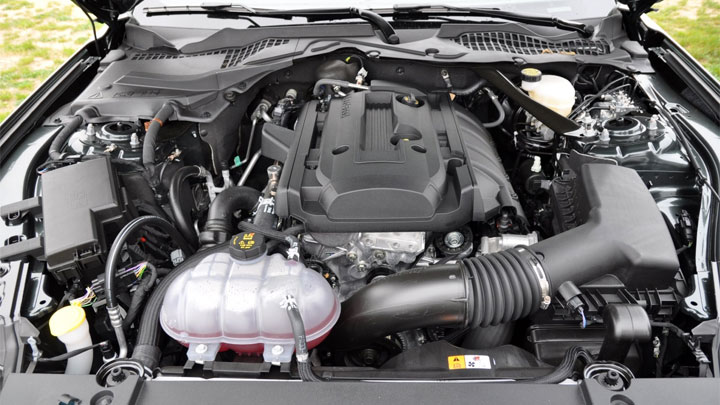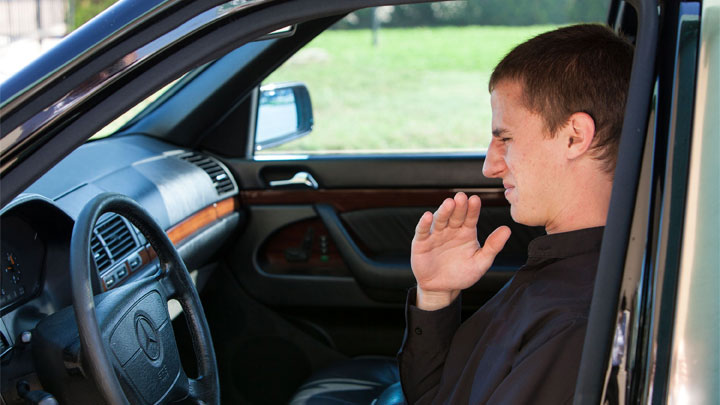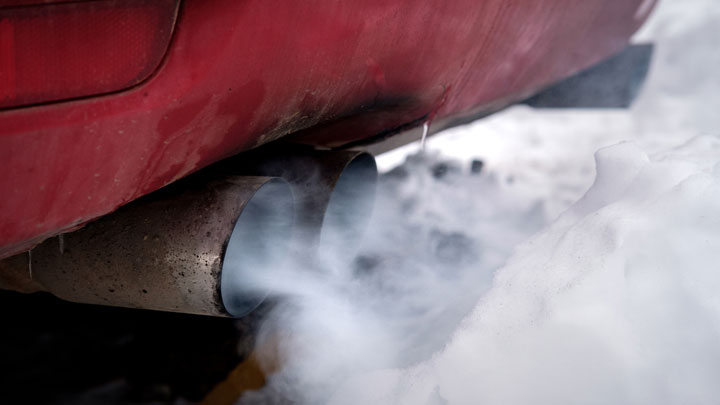6 Engine Misfire Symptoms You Shouldn’t Ignore
It can be difficult to diagnose the reason for an engine misfire, but context gives major clues. Misfires are often intermittent and will sometimes only manifest with a specific type of fuel, environment, or engine load (how deep you’re into the gas pedal).
Engine misfire symptoms should not be ignored because misfiring cylinders strain the engine and decrease fuel economy over time. Here are the most common signs of an engine misfire.

What Is an Engine Misfire?
A healthy four stroke combustion engine performs a series of actions in the right order and at the right time to burn fuel and make power.
- As the piston travels downward, a precise air fuel mixture enters the combustion chamber as the intake valves open. After the valves close, this mixture is compressed as the piston travels upward.
- On the power stroke, this air fuel mixture is ignited by the spark plug, further increasing cylinder pressure. This high pressure forces the piston down very quickly, turning the crankshaft in the process.
- The exhaust valves open on the exhaust stroke, expelling the burnt gases from the cylinder, and the cycle repeats.
Misfires are caused by a problem with one or more of the components necessary for combustion (fuel, oxygen, and a spark) or the mechanical components in the system, such as the cylinder itself.
Incorrect timing or one or more cylinders that fail to complete all of the steps both result in an engine misfire. If the air fuel ratio is incorrect, the mixture may not combust at all or may prematurely detonate (colloquially referred to as knock).
See Also: Symptoms of a Bad Knock Sensor
Common Symptoms of an Engine Misfire
Engine misfires can, like many other vehicle problems, manifest with the same symptoms as other issues. The first step in diagnosing the problem is having the vehicle’s computer checked for codes.
Any or multiple of these symptoms should make you suspicious of a misfire.
#1 – Loss of Power, Stumbling, and Vibration

You may be wondering, “what does an engine misfire feel like?” There may be a palpable loss of power resulting from a vehicle that may be running on fewer cylinders than normal, or a brief hesitation in the delivery of power when gas is applied.
You may also feel intermittent jerking, bucking, or stumbling from the engine. You’ll notice rough and/or slow acceleration.
Vibration while the vehicle is running is common especially if the misfire is caused by a mechanical problem. The severity varies depending on the RPM and is often worse at idle.
#2 – Abnormal Sounds

So what does a misfire sound like? During a misfire, the engine will make a sudden sound that can be described as popping, sneezing, or backfiring.
Backfiring occurs when unburned fuel exits the cylinder on the exhaust stroke and is then ignited farther in the system by the spark of the next cylinder.
You may notice an overall change in engine sound if one cylinder is not working at all, since a four-cylinder car will now only have three working cylinders. It’s the same as if a spark plug blew out of the cylinder head.
In addition, the sound of a vacuum leak may also be present in the engine.
#3 – Unusual Smells

Because a misfire can lead to incomplete combustion of the fuel-air mixture, unusual smells can result. When a cylinder misfires, the unburned fuel can be dumped into the exhaust system, producing a strong gasoline smell.
Additionally, if this excess unburned fuel reaches the catalytic converter, it can cause an overload, resulting in a sulfur or rotten egg smell due to the converter’s inability to process all the hydrocarbons.
#4 – Check Engine Light

After 1995, vehicles came equipped with OBD2 systems to aid in diagnosing engine issues. When any of the vehicle’s sensors detect readings outside their expected values, a check engine light is illuminated and the code is stored in the engine control unit (ECU).
Most OBD2 vehicles will have a code for “Cylinder X Misfire” that will help you locate the problem (where X is the cylinder number that misfired). Sometimes the check engine light will remain illuminated until cleared, but in some cars the light will flash when the misfire occurs.
The check engine light has a variety of potential triggers, so it’s important to get the code read to see what exactly went wrong. Diagnostic trouble codes P0301 through P0312 are common codes that show up. The last 2 numbers indicate which cylinder is having the misfire. For example, P0306 would indicate a cylinder 6 misfire issue.
Code P0300 is another code that may appear as it relates to multiple cylinders misfiring.
Many automotive stores such as Auto Zone can do this for you for free. Write down the code and description of the problem to aid in troubleshooting the problem.
Related Trouble Codes:
#5 – Struggling Engine

Because a misfire disrupts the engine’s normal operation, this can lead to a lack of smoothness and consistency in power delivery. When one or more cylinders do not fire properly, the engine loses balance in its power output, causing it to struggle, shake, or hesitate.
This can be felt as a jerking motion when accelerating or a general loss of power, as the engine cannot produce the expected level of performance. The struggle is often most noticeable when the engine is under load, such as during acceleration or when climbing hills, where all cylinders need to work efficiently to maintain speed and power.
On top of that, misfires can sometimes cause difficulty starting the vehicle or stalling of the engine when stopped. The later is even more likely with a high accessory load (such as when using the air conditioner, headlights, and radio).
#6 – Excessive Exhaust Smoke

Seeing black, blue-tinged, or very white and sweet-smelling exhaust is a sign that something is not right. Dark, sooty exhaust could indicate a rich air fuel mixture or carbon buildup. Blue-tinged exhaust is indicative of burning oil.
White, sweet-smelling exhaust may point to a head gasket leak. Anything in the combustion chamber that is not air or gasoline will affect the vehicle’s ability to burn the mixture as intended.
- Replace the Engine or Replace the Car? (11 Factors to Consider) - Apr 11, 2024
- Plastic Piece Dragging Under Your Car? (What It Is and What To Do) - Mar 21, 2024
- Timing Belt vs Timing Chain (What’s the Difference?) - Feb 27, 2024

Ive got a 95 toyota celica 5 speed. It idles great and runs good but here recently when i go to take off in 1st its like im having misfire and struggling bad. if i hit the clutch and accelerate it goes away. usually happens when i take off. Ive checked all my plugs and wires theyre all good. could exhaust cause this to happen? It only happens sometimes
Have you checked your injectors, or tried swapping plugs? I would look at your distributor or coil pack as well (whichever you have on that vehicle).
I love these serious technical analysis based on both mechanical and electrical of automotive technology. To this far i say this is great.
Car is mis firing and popping. 5.7 hemi I’ve checkEd the timing, the rocker arms, changed all gaskets, still lost here any help would be greatly appreciated
Any check engine light codes?
I installed new spark plugs and coil packs . And it’s still misfiring what could it be ? I have a camshaft sensor code as well . Everytime I drive and accelerate at a good speed . My exhaust pops like crazy
Check your grounds, make sure they are clean and tight. It sounds like a wiring issue to me.
This article helped a lot! The descriptions were exactly what I have been experiencing. I have a 97 Toyota Camry and have had a coolant leak in the engine for a while now. I’ve been nursing the car for about 6 months, putting coolant in the radiator every 1-3 days depending on how much I drive the car. But yesterday and today the acceleration was slow and I heard popping. (Sounded like I was making popcorn under the hood! haha!) The car was shaking too. I think it’s time for a new car, ya think?
That depends on your situation. It may be worth it to try to fix your car if you like it a lot, or you might be better off buying a different one depending on what’s wrong with the car. It sounds like you might have a head gasket leak, assuming you don’t see any coolant leaking onto the ground anywhere. If you wish to keep the car on the road, I would take it to a mechanic to get it checked out and go from there.
I got the starter and alternator checked and they said there fine
I changed the spark plugs and wires still runs bad and it won’t start up and also when I get a jump and drive the battery is dying?
I would definitely get the battery tested just to be on the safe side, especially since this test is free most places. When you go to the parts store for that, have them check for codes as well. You may find misfire codes or something similar to help you narrow it down.
If the vehicle is running rough, I suspect the issue is somewhere other than the battery. Plugs and wires were a good first step. I would check for vacuum leaks next, as these can quickly make a vehicle run rough by adding unmetered air to the system, throwing off the air fuel ratio. Good luck on your search.
Replace alternator
Car starts rough idle I have new spark plugs and wires could it be the ignition coal on 2000vw jetta
Check air flow sensor
Car idles fine and then it would jy mis one and idle fine again for a while it’s very intermittent and very difficult to diagnose as it only happens while idling